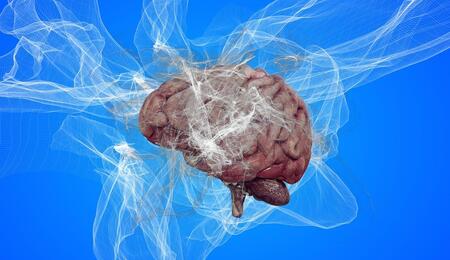Endocannabinoids - the Body Producing Its Own ‘Cannabis’

The human body does produce its own cannabinoids, which are called endocannabinoids. These molecular compounds are part of a larger internal network that regulates key functions such as sleep, appetite, pain, stress, and mood. The endocannabinoid system was discovered in the early 1990s while scientists were studying the effects of THC, the psychoactive compound in cannabis.
What Are Endocannabinoids and Why Does the Body Need Them?
The endocannabinoid system (ECS) acts as a natural regulator that seeks to balance the body. CB1 (brain receptors) and CB2 (receptors in the immune system) respond to internal, self-released chemicals such as anandamide (the ‘happiness molecule’). This system is activated, for example, when you are stressed out or suffer from pain, and it helps to bounce back and balance your health.
Why Does Cannabis Have an Effect?
The phytocannabinoids in cannabis, i.e. those in its flowers such as THC and CBD, mimic the endocannabinoids that can activate the ECS. That is why consuming cannabis has such varied effects: it helps you sleep, reduces pain, makes you hungry, or acts as a mood booster. CBD-dominant strains can enhance the regulatory effect without producing mind-altering.
CB1 receptors are mainly positioned in the brain and the central nervous system, therefore regulating functions such as memory, appetite, or pleasure. CB2 receptors are found mainly in the immune system, but also in the spleen and the cardiovascular tissues; these participate in the modulation of inflammatory and defense reactions.
Endocannabinoids are produced on demand and are not stored, allowing rapid and localized responses to physiological imbalances. The whole system of ‘endoreleases’ and receptors gets influenced when cannabinoids are consumed with various cannabis products, which can be pre-rolls, medibles, concentrates, etc. Both the major and minor cannabinoids coming from cannabis flower can interact with the CB1 and CB2 receptors; they can mimic the ‘endo’ particles, and fully participate in how the system modulates the body.
Because the endocannabinoid system is involved in numerous key processes, it is considered as a promising therapeutic target for the treatment of diseases such as chronic pain, neurological disorders, inflammation, cancer and more.
More on this topic from Soft Secrets:







